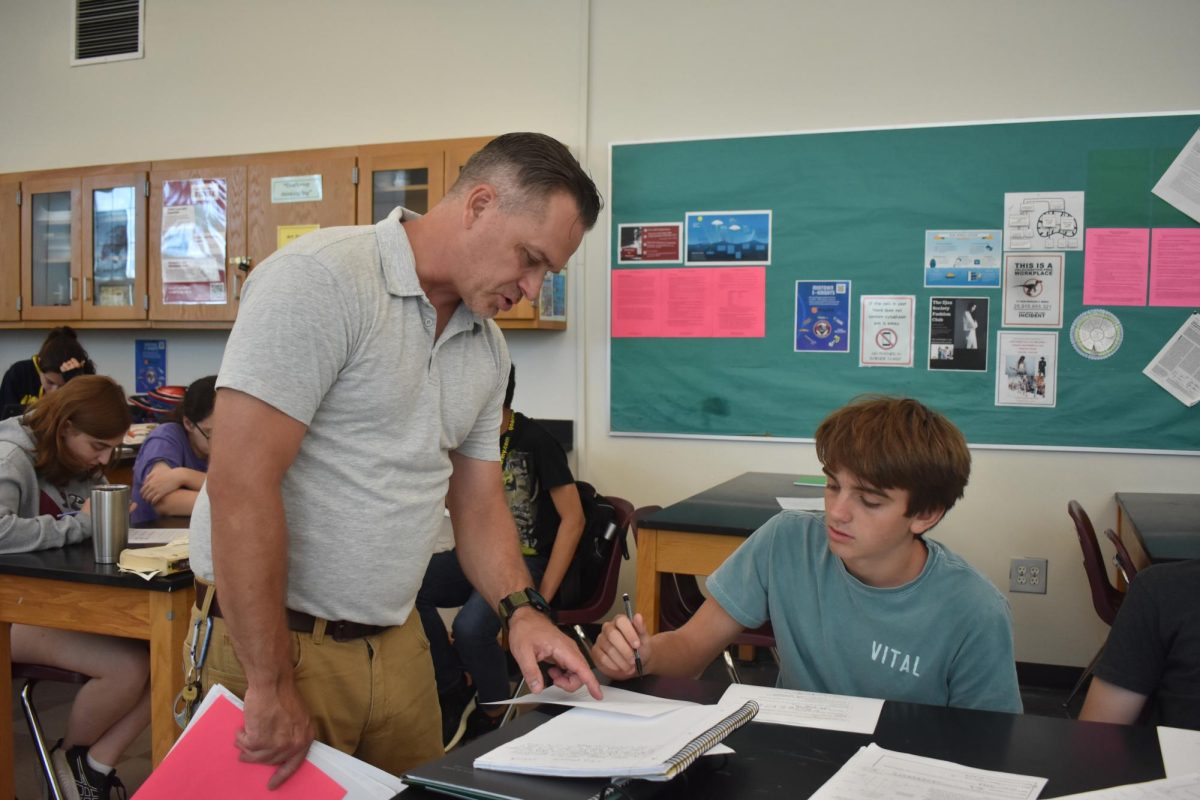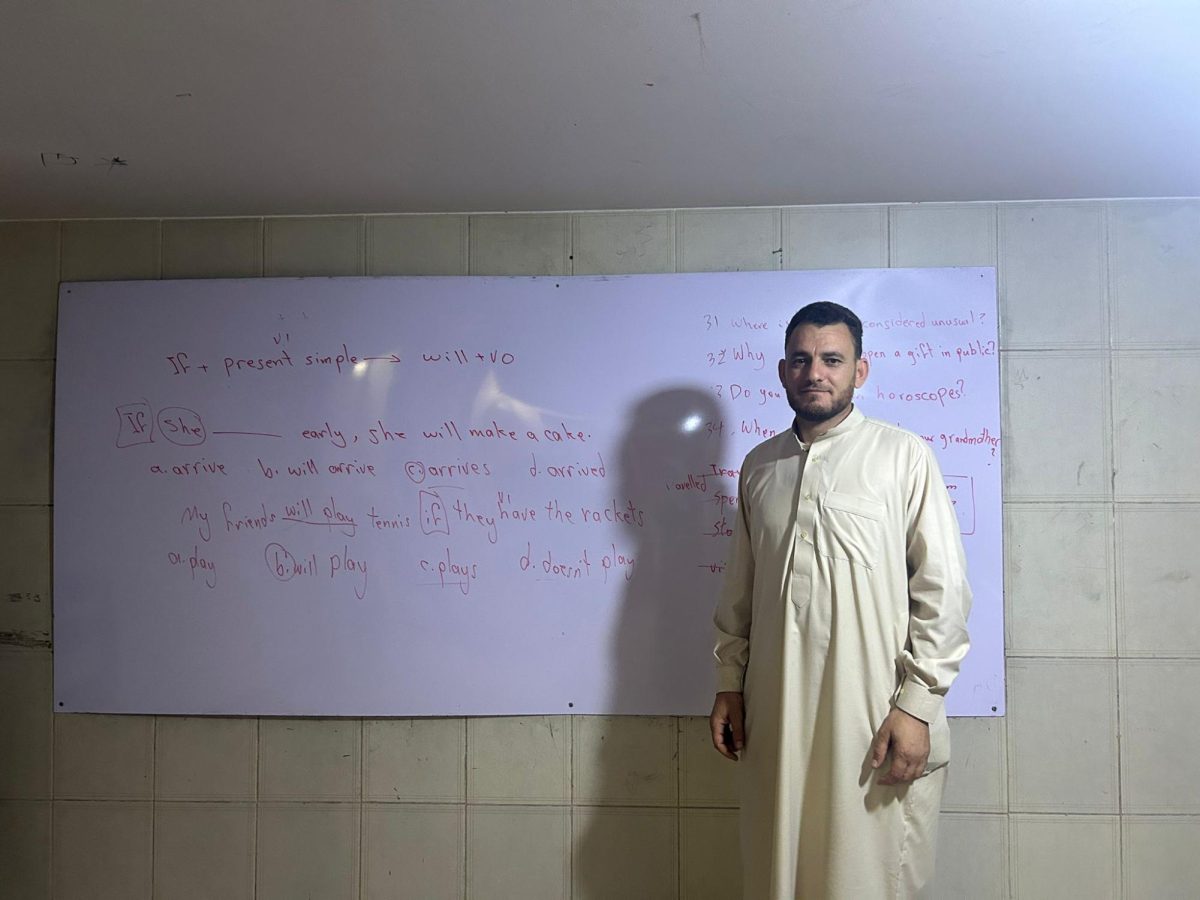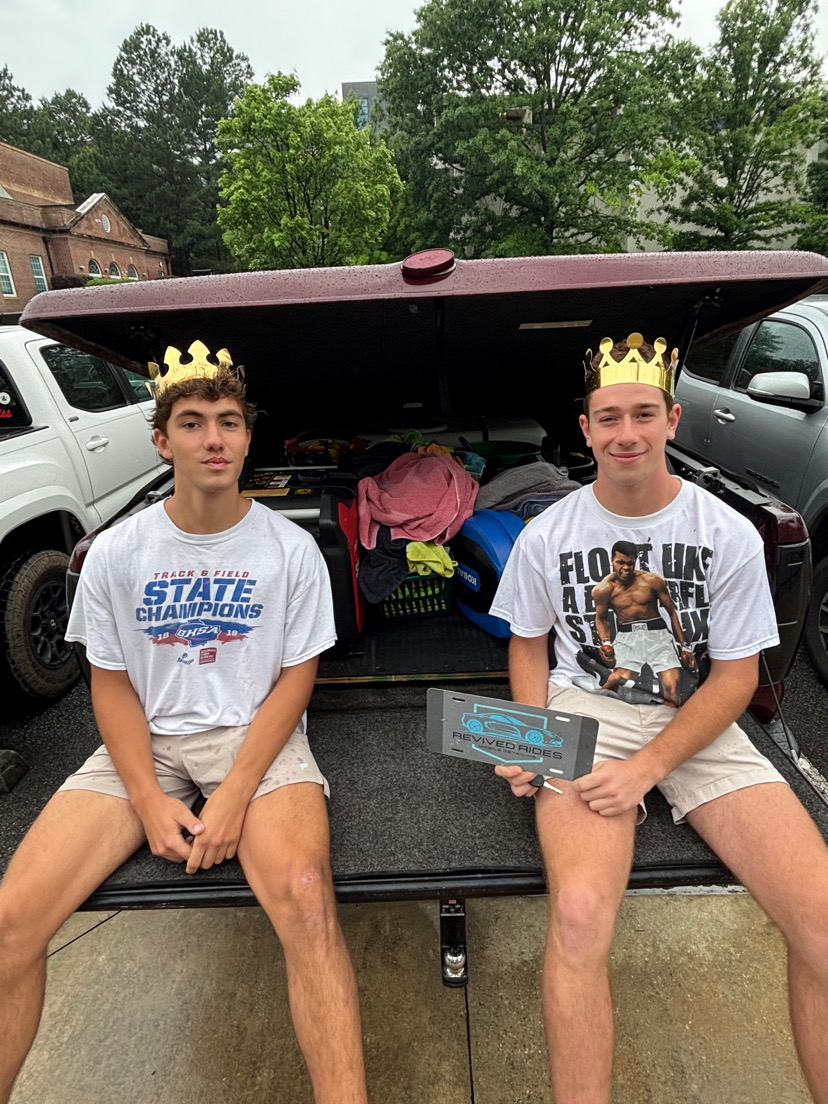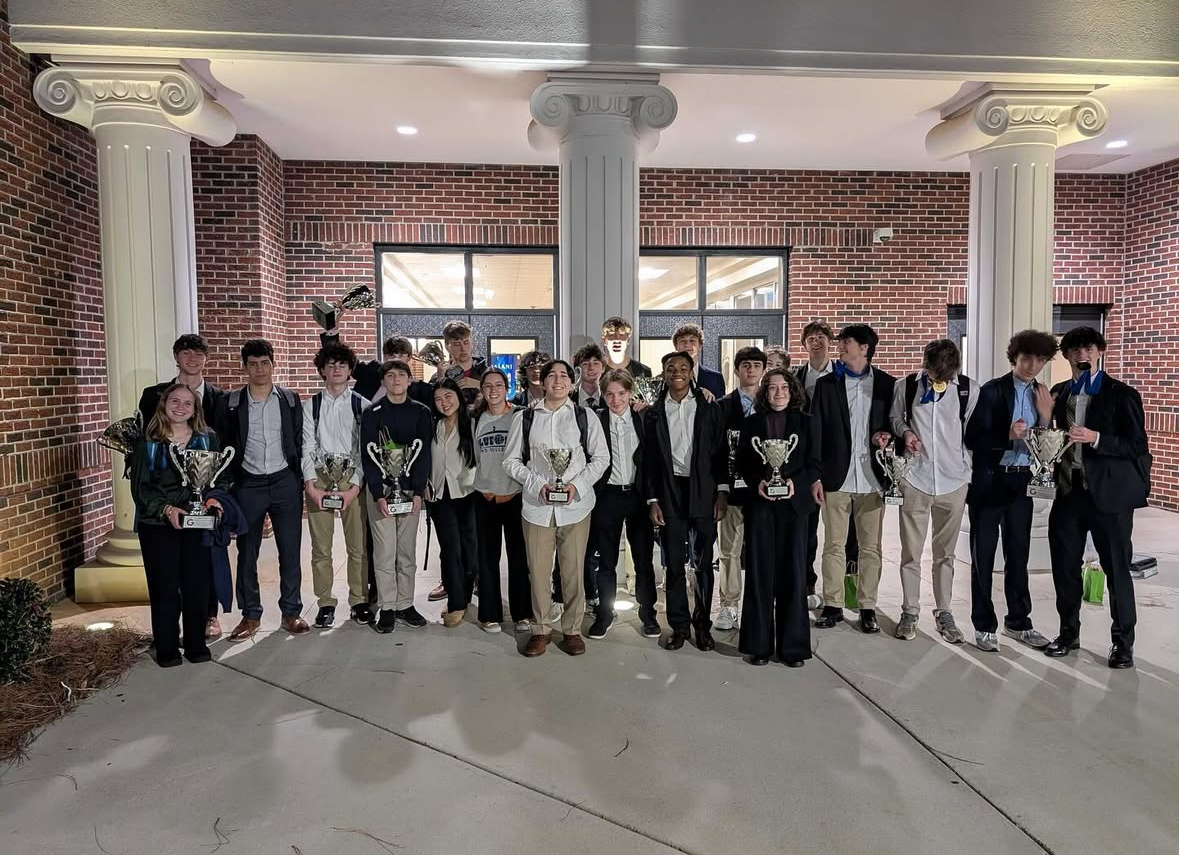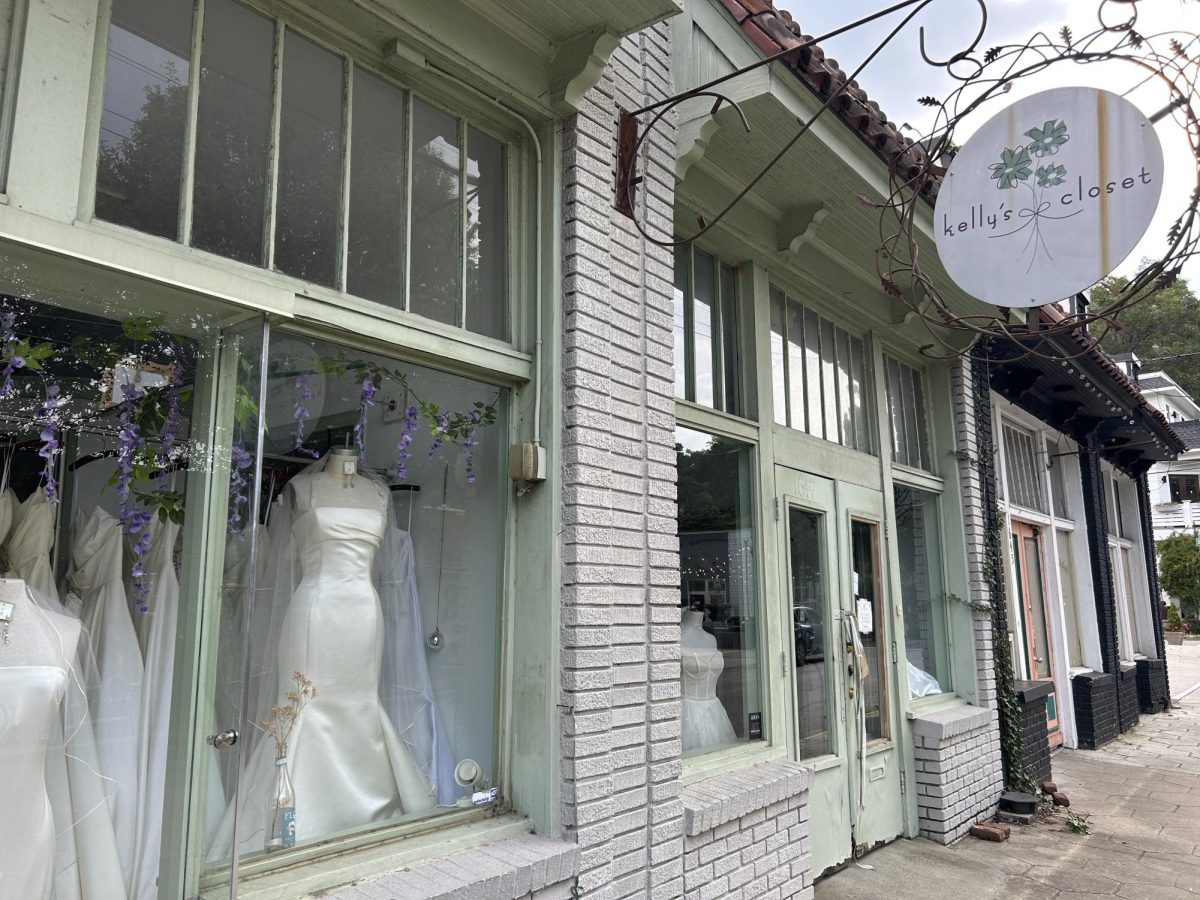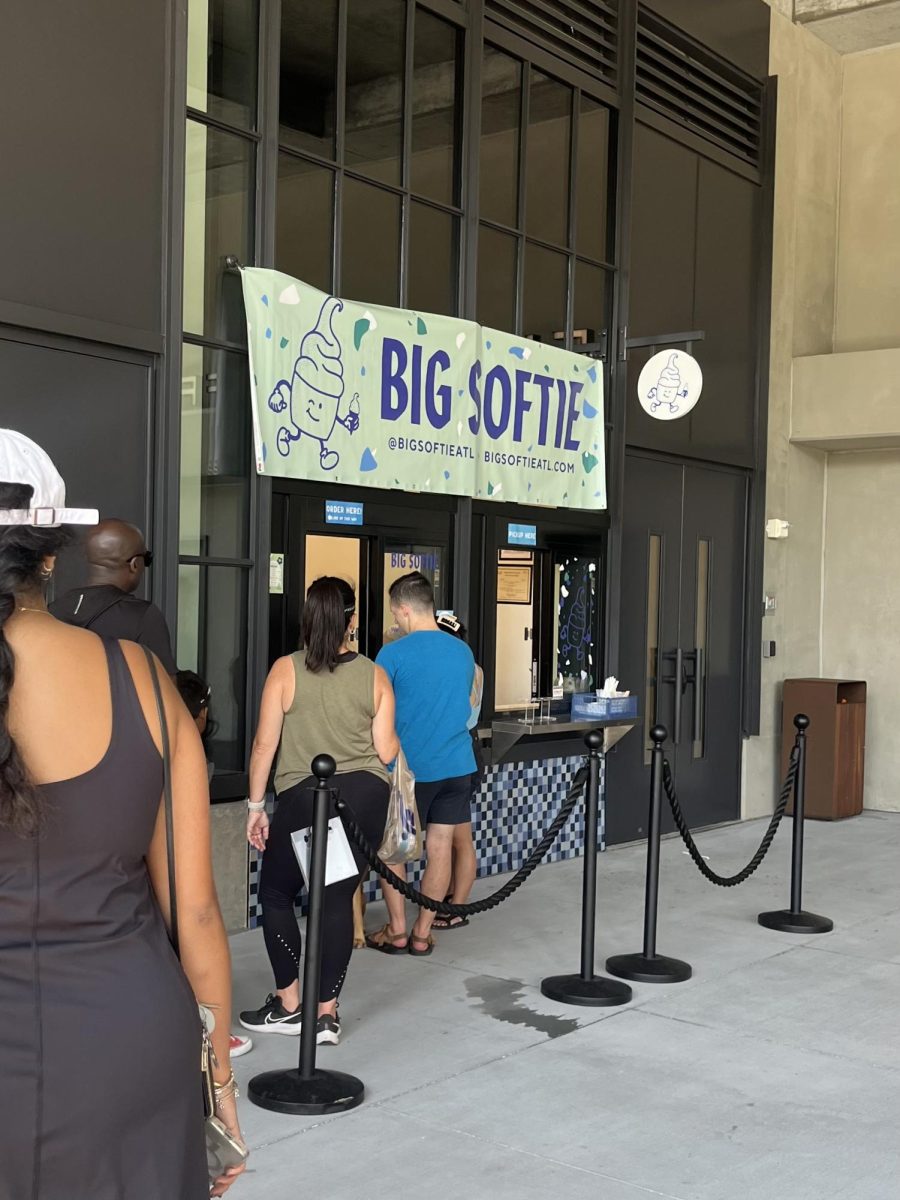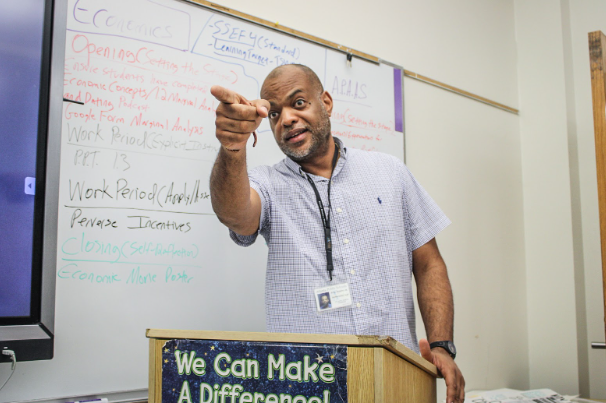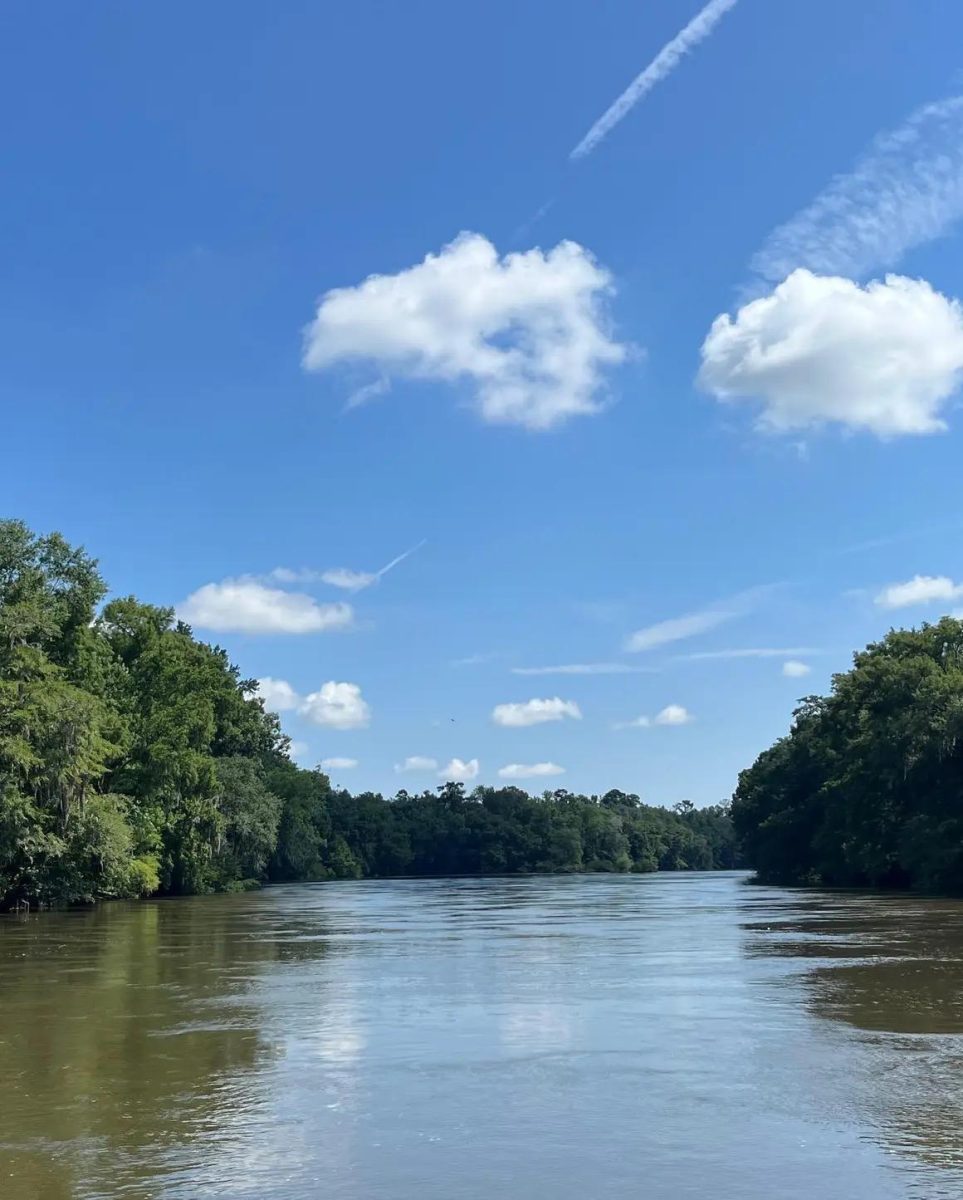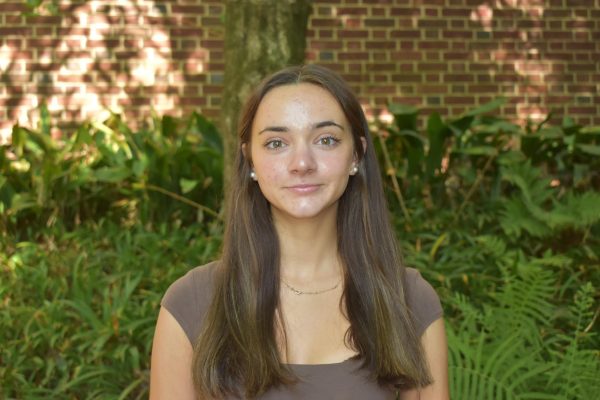Having worked at Midtown for over 20 years, AP Biology and Environmental Science teacher Nickolai Curtis incorporates his hands-on experience as a former zookeeper into his everyday teaching.
Born and raised in Germany, Curtis became aware of his love for animals at a young age and acknowledged his desire to work with them.
“I always wanted to work in the animal care field,” Curtis said. “It was one of those goals I had: I wanted to work in a zoo. My first zoo experience was actually when I was living in Germany as a kid. I saw the Galapagos tortoises and I said, ‘I want to work with those,’ because I was always into reptiles.”
During his higher education, Curtis pursued a degree that would allow him to work in the animal care field. He became a zookeeper directly after graduating from Maryville College in 1998 at age 23.
“I got my bachelor’s degree in biology,” Curtis said. “The biggest thing that got me [working at a zoo] was being a volunteer and intern at the Knoxville Zoo in Knoxville, Tennessee.”
Curtis said he mainly worked with reptiles, learning and understanding them better through on-the-job training and through other coworkers who had previously worked with reptiles.
“As a zookeeper, I specialized in reptiles [such as] snakes, lizards, crocodiles and big tortoises, so specifically herpetology,” Curtis said. “I was mainly hired for my expertise in large constrictors, but then I also became trained in pretty much anything [else] you could imagine.”
Through his work, Curtis grew a strong connection with lemurs and vipers.
“It’s kind of weird; even though I’m a reptile guy, I loved working with lemurs,” Curtis said. “I got to work with lemurs and they are just the coolest little primates. I liked working with a lot of the viper species. I worked with African Bush vipers because I got trained with them and I got to raise some from literally little baby hatchlings.”
While he was mainly working around animals most days, Curtis also enjoyed the teaching aspect of zoo keeping by relaying information about the animals to visitors.
“My favorite part was everyday interactions with the animals,” Curtis said. “What I did enjoy doing … was doing the talks with people and school groups, and telling them about stuff [the zookeepers] did. I ended up becoming sort of a face of my department and started doing some media [work] for Zoo Atlanta.”
Curtis said this experience of educating as a zookeeper was what allowed him to become a teacher.
“[Doing talks with school groups] was pretty much one of the launching pads to push me into teaching,” Curtis said. “APS [Atlanta Public Schools] had a program where they needed teachers in critical fields, and I had that experience.”
Even though zoo keeping and teaching are two very different careers, Curtis said that management skills have been essential to both jobs.
“One zoo to the other; it’s all about management,” Curtis said. “I’m managing a group of animals in captivity. The kids aren’t animals in captivity, but I’m managing kids in an environment and it’s pretty much the same.You learn their nuances and you learn their behaviors, and it helps you predict how you’re going to interact with them.”
Pierre Davis, AP Biology and Environmental Science teacher, has known Curtis since 2015, and was conveniently located next to him across the hall, making it easy to get along and befriend Curtis.
“Mr. Curtis is unique,” Davis said. “He is very unique [in terms of ] his interests and his personality. You don’t see too many people like him. He’s definitely very outgoing and he has his own sense of humor but overall, he’s a likable person. People are kind of drawn to him.”
AP Seminar and Speech Forensics teacher Mario Herrera said Curtis is a very genuine teacher and person overall.
“He is a sort of ‘What you see is what you get’ [type of person] and his personality really comes through when he’s helping a student,” Herrera said. “I think that’s pretty cool because that means he’s his authentic self, and I think students know that. Students can pick up when someone cares about how they’re doing and is engaged when making sure that they are successful.”
Herrera said Curtis’ classroom environment is one where students feel open to asking questions and insights without fear of being rejected.
“He looks at the world in wonder and I think he does that with kids too,” Herrera said. “He wants to excite them because he is not afraid to be excited. As a result, when those barriers come down, you are more likely to ask questions, to make mistakes, and to learn from them. He just wants to inform the public about the cool things that are around us and he does the same thing with science.”
One of the elements that adds towards Curtis’ class environment is his experience in zoo keeping which he integrates into his everyday teaching.
“The subject that he teaches goes along with those real life experiences,” Davis said. “Bringing them into the classroom helps the students actually make that connection to the real world. It’s more than just book knowledge. It’s actual real world knowledge … that he’s actually experienced himself.”
Curtis said he enjoys remaining active with real-world connections through his involvement in zoo keeping and believes that students should understand that there is not one particular path to take when entering the future.
“If you’re interested in those careers, I would say the biggest thing is getting involved,” Curtis said. “My jumping stone to getting into zoo keeping was actually being a volunteer and an intern because I was willing to put in my own time.”
While he misses working and interacting with the animals, Curtis said the most fulfilling part about being a teacher is aiding kids in opening their perspective and mindsets.
“What I find rewarding is helping kids see the bigger picture and seeing the multitude of possibilities … it’s understanding that there’s a lot more that branches out from [biology].”

